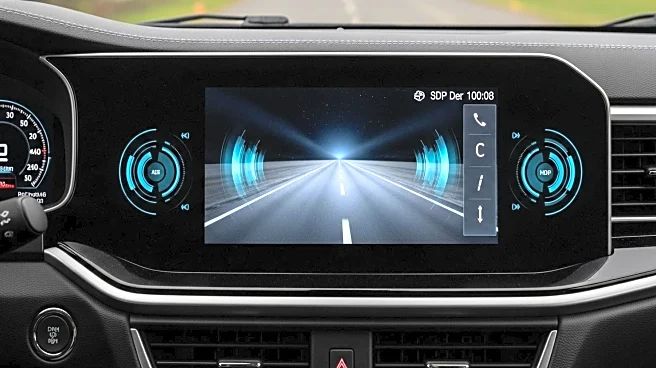What is the story about?
What's Happening?
Driver coaching in fleet management is undergoing a transformation from reactive measures to proactive development tools. Traditionally, coaching involved informal advice and support from experienced drivers. However, the introduction of technology such as dashcams and telematics shifted the focus to corrective actions triggered by performance data. Leading fleets are now recognizing the importance of blending data insights with empathetic, interactive coaching. This approach involves understanding the root causes of driver performance issues and fostering a two-way dialogue to improve safety and efficiency.
Why It's Important?
The evolution of driver coaching practices is crucial for enhancing fleet safety and operational efficiency. By moving beyond reactive measures, fleets can address systemic issues that contribute to performance problems, such as unrealistic schedules or routing decisions. This proactive approach can lead to better driver retention, reduced accident rates, and improved compliance with safety regulations. As fleets adopt these practices, they can achieve a competitive advantage by fostering a culture of continuous improvement and collaboration across departments.
What's Next?
Fleets may continue to refine their coaching programs by piloting initiatives in specific terminals or focusing on particular challenges. Feedback from these pilots can inform broader implementation strategies. Additionally, fleets might explore matching coaches with drivers based on expertise or geographic location to enhance the effectiveness of coaching. As these practices gain traction, there could be increased collaboration between safety, dispatch, and operations teams to address systemic issues and improve overall fleet performance.
Beyond the Headlines
The shift in driver coaching practices highlights the importance of maintaining the human element in fleet management. While technology provides valuable data, it is essential to use it as a tool for understanding and supporting drivers rather than solely for corrective measures. This approach can foster trust and respect between drivers and management, leading to a more positive work environment. Furthermore, the integration of technology in coaching raises questions about privacy and data usage, necessitating clear policies and transparency.















